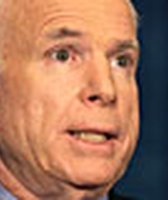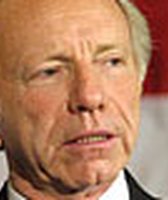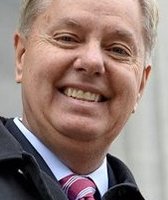Get PolitiFact in your inbox.
SUMMARY: For many voters, illegal immigration is a key issue in the 2008 presidential race. Here's a look at the latest statistics on immigration; the McCain-Kennedy proposal that many of the candidates have taken a stand on; and a summary of the immigration positions supported by each candidate.
ILLEGAL IMMIGRANT TOTALS:
11.55-million as of January 2006
TOP 10 COUNTRIES OF BIRTH:
Mexico: 6.57-million
El Salvador: 510,000
Guatemala: 430,000
Philippines: 280,000
Honduras: 280,000
India: 270,000
Korea: 250,000
Brazil: 210,000
China: 190,000
Vietnam: 160,000
LEGAL IMMIGRATION (in fiscal year 2006):
1.27-million
TOP 10 COUNTRIES OF BIRTH
Mexico: 173,753 (13.72%)
China: 87,345 (6.90)
Philippines: 74,607 (5.89)
India: 61,369 (4.85)
Cuba: 45,614 (3.60)
Colombia: 43,151 (3.41)
Dominican Republic: 38,069 (3.01)
El Salvador: 31,783 (2.51)
Vietnam: 30,695 (2.42)
Jamaica: 24,976 (1.97)
HIGHLIGHTS OF McCAIN'S 2006 BILL
(Secure America and Orderly Immigration Act)
The bill was incorporated into another measure that passed the Senate but then stalled.
• The bill would allow undocumented immigrants in the United States on or before May 12, 2005, to register for a temporary visa that would be valid for six years. They would have to pay a $1,000 fine and any back taxes. To obtain permanent status, workers would have to pay a $1,000 application fee, meet English and civics requirements, as well as clear security and background checks.
• The bill would amend the Immigration and Nationality Act to create a new temporary work visa, known as the H-5A. People entering the United States could at least initially work in industries that are not high skilled or agricultural in nature. The visa would be for three years and could be extended for one additional three-year period. Those admitted with the visa would be eligible for permanent resident status after working in the country for four years. In the first fiscal year, 400,000 of the visas would be available, with the same number allocated in future years unless demand is exceeded.
• To allow employers to verify an employee's work status, the bill would establish an electronically maintained Employment Eligibility Confirmation System created and managed by the Social Security Administration in consultation with the Homeland Security secretary.
• The bill would provide hospital reimbursements for the emergency care of undocumented immigrants under Medicare from fiscal years 2008 through 2011. It also would add the undocumented immigrants who are temporary visa-holders to the list of patients that hospitals can be reimbursed for.
• The bill would exempt immediate relatives (spouses, children, parents) of U.S. citizens from counting against the annual ceiling of 480,000 family-based visas and distribute the visas elsewhere.
• The bill would authorize the Department of Homeland Security to use aerial surveillance to develop a national strategy for border security and establish an advisory committee on border security and enforcement issues consisting of representatives from border states, law enforcement, community officials and tribal authorities.
WHERE THE CANDIDATES STAND
REPUBLICANS
Rudy Giuliani: Would finish the border fence and maintain a border patrol of 20,000 agents. Supports McCain's path to citizenship. Would create an ID card and national database of noncitizens. Also would track aliens who overstay visas and implement a "check out" system. Would deport all illegal aliens who commit a felony and require all immigrants who seek permanent status to learn English. As mayor of New York City, he opposed a welfare law that allowed city employees to turn in illegal immigrants seeking services like police protection, hospital care and public education. He also denounced a federal law that cut off Social Security benefits, food stamps and health benefits to legal immigrants who were not citizens.
Mike Huckabee: Would give illegal immigrants 120 days to register with the government and leave the country, then apply for legal entry with no penalty. Would finish the 700-mile border fence by 2010 and deploy 23,000 more Border Patrol agents. Would crack down on a don't-ask-don't tell policy where city workers don't have to report illegal immigrants. Would stiffen penalties for employers of illegal immigrants. As governor of Arkansas he supported providing some state-funded services to illegal immigrants.
Duncan Hunter: Opposes any path to citizenship for undocumented workers. Voted against the 1986 immigration law that provided amnesty to nearly 2-million illegal aliens. The representative of San Diego County obtained funding for a 14-mile border fence between San Diego and Tijuana begun in 1990 and wrote the law authorizing funding for a subsequent strengthening of the fence. He voted for the fence along the Mexican border and supports ending birthright citizenship. "It is unacceptable that we allow millions of people to sneak in the back door of our country when the front door is available. We have tried amnesty and it does not work."
John McCain: Co-wrote 2006 Senate bill with Edward M. Kennedy that provides a path to citizenship for most of the estimated 12-million undocumented workers in the United States, voted for a 700-mile fence along the U.S.-Mexico border, co-sponsored 2007 legislation that would allow states to give illegal immigrants in-state tuition for higher education and allow the Homeland Security secretary to confer legal resident status on some illegal immigrant students.
Ron Paul: Opposes any path to citizenship for illegal immigrants or providing health or education services to those in the United States illegally. As a House member, voted for the 700-mile fence along the Mexican border. Has called for an end to birthright citizenship, saying, "No other wealthy, Western nations grant automatic citizenship to those who simply happen to be born within their borders to noncitizens."
Mitt Romney: Opposes McCain's plan, saying there should be no "special pathway" to legalizing undocumented workers. Would finish the 700-mile border fence, issue ID cards to noncitizens, levy fines and sanctions cities that fail to enforce immigration laws and toughen penalties for employers who hire illegal immigrants. As governor of Massachusetts, he opposed giving drivers' licenses to illegal immigrants, vetoed a bill allowing the children of illegal immigrants to pay in-state tuition at state universities and supported enforcement of immigration law by state troopers.
Fred Thompson: Would finish the border fence by 2010 and increase the Border Patrol force to at least 25,000 agents. He opposes any "amnesty" plan for current illegal residents. He would punish don't-ask-don't-tell cities and employers who disregard immigration law. Supports adding jail space to incarcerate illegal aliens.
DEMOCRATS
Hillary Clinton: Supports a path to citizenship similar to the McCain-Kennedy proposal and voted in 2006 for a bill that incorporated major aspects of the plan. Would toughen penalties for employers who hire illegal immigrants. Voted for the Mexican border fence. Says family reunification should be a priority in decisions about immigration policy.
John Edwards: Supports a path to citizenship similar to McCain-Kennedy and would toughen penalties for hiring undocumented workers. Supports a border fence, but not along the entire Mexican border. Would double the number of Border Patrol agents and install more surveillance equipment. Opposes a temporary guest worker program. Also emphasizes family reunification. As a senator in 2003, co-sponsored legislation that would have allowed states to give illegal immigrants in-state tuition for higher education.
Mike Gravel: Opposes the border fence, saying Border Patrol and Coast Guard can be enlarged, if need be. Would help Mexico and Central American countries grow their economies to solve the illegal immigration problem. Supports a path to citizenship.
Dennis Kucinich: Voted against the Mexican border fence, saying he opposes giving the Pentagon control over border security. Supports a path to citizenship.
Barack Obama: Supports a path to citizenship similar to McCain-Kennedy and voted for the 2006 bill incorporating major aspects of the plan. Voted for the Mexican border fence. Would toughen penalties on firms that hire illegal immigrants. Calls for promoting economic development with Mexico as a way to decrease illegal immigration and, like Clinton, says family reunification should be a guiding principle in immigration policy.
Our Sources
Department of Homeland Security, Immigration statistics
John McCain, On immigration, in New Hampshire, April 7, 2006
New York Times, Election Guide 2008 "On the Issues," Immigration, candidate profiles
JohnMcCain.com, On the Issues, Border Security & Immigration Reform
MittRomney.com, Ending the Tide of Illegal Immigration
San Francisco Chronicle, Romney defends general, 'don't ask, don't tell' policy, by Carla Marinucci, March 17, 2007
MikeHuckabee.com, Issues, Immigration
MikeHuckabee.com, The Secure America Plan
Fred08.com, On the issues, Immigration
JoinRudy2008.com, On the issues, Immigration
RonPaul2008.com, Issues, Border Security and Immigration Reform
GoHunter08.com, Core principles, Value issues
HillaryClinton.com, Issues, Reforming our immigration system
BarackObama.com, Issues, Immigration
JohnEdwards.com, Issues, Comprehensive immigration reform
Kucinichonline.com, Immigrants' rights
Gravel2008.us, Issues, Immigration







































